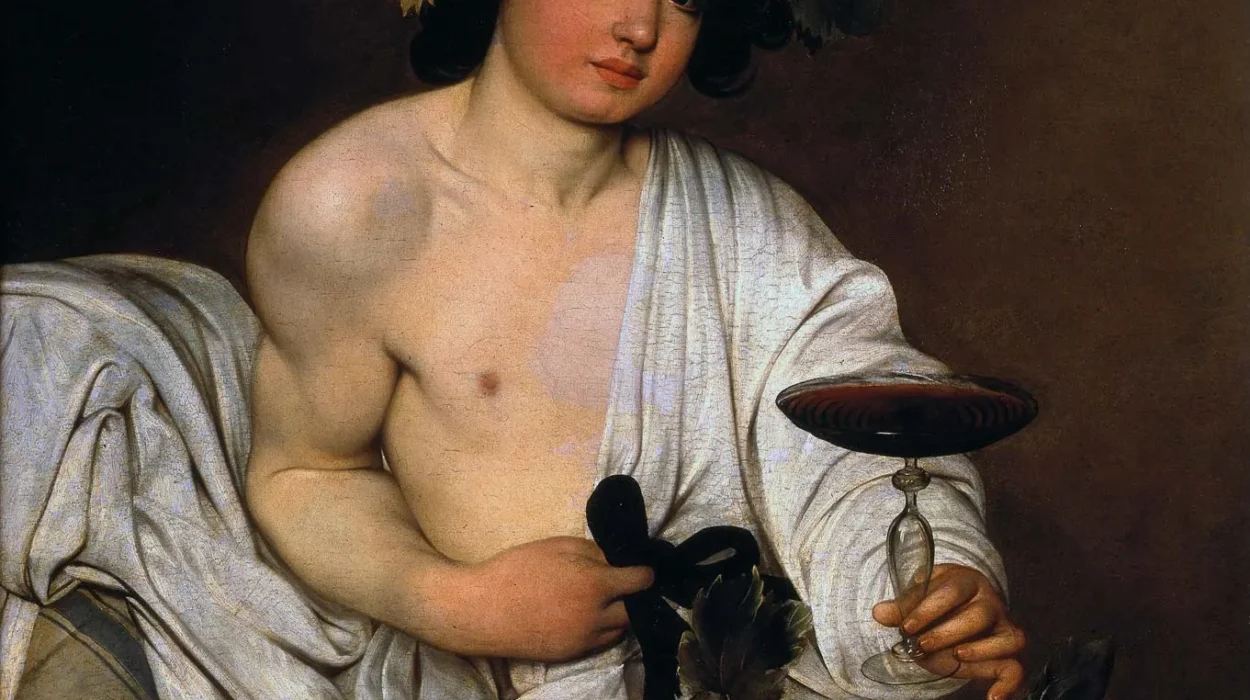Greek mythology is a garden of stories, rich with flowers of love, tragedy, and transformation. Among them lies one of the most hauntingly beautiful tales—the story of Hyacinthus and Apollo. It is a myth that speaks not only of divine love but also of the fragile nature of beauty, the inevitability of loss, and the power of memory. The tragic fate of Hyacinthus is more than a simple story of a mortal and a god; it is a reflection on youth, desire, mortality, and the way grief can blossom into immortality through myth and symbol.
The Greeks, whose imaginations gave birth to countless myths, were not only telling stories—they were exploring the human condition. In the myth of Hyacinthus, they gave voice to the delicate balance between passion and fate, joy and grief, life and death. To this day, the myth continues to echo through literature, art, and philosophy, reminding us that beauty is often fleeting, yet it leaves behind a legacy that endures.
Hyacinthus: The Mortal Beloved
Hyacinthus was no ordinary mortal. In the myth, he was described as a prince of Sparta, the son of King Amyclas and the queen Diomede. His beauty was said to rival that of the gods themselves, his youthful charm radiant enough to draw the gaze of immortals. In ancient Greek storytelling, beauty often carried both power and danger. It was a gift that could elevate a mortal into the company of the divine, but it could also expose them to envy, rivalry, and tragedy.
Hyacinthus was not only adored by mortals but also became the beloved of Apollo, the god of music, prophecy, and the sun. Their bond was portrayed as tender and passionate, filled with the intimacy of shared companionship. Yet, their love story was destined to be short-lived, for fate, as often in Greek myths, had tragedy in store.
Apollo: God of Light and Art
To understand the myth of Hyacinthus, one must also understand Apollo. Among all the Olympian gods, Apollo was perhaps the most complex and multi-faceted. He embodied beauty, order, rationality, and harmony. He was the patron of music and poetry, the one who strummed the golden lyre and inspired the Muses. He was also a god of healing and prophecy, his oracles shaping the decisions of kings and empires. Yet, Apollo was not without contradictions. For all his light and rationality, he was also capable of jealousy, wrath, and impulsive passion.
When Apollo fell in love with Hyacinthus, it was a union of divine radiance and mortal beauty. Their bond was celebrated in myths as one of the most poignant examples of same-sex love in Greek mythology. Unlike some myths of predatory divine pursuit, the story of Apollo and Hyacinthus was often portrayed as mutual affection—a rare moment where love between god and mortal seemed tender and pure.
The Shadow of Jealousy
But no tale of beauty in mythology exists without shadows. Hyacinthus’s beauty did not escape the attention of others. Among those who desired him was Zephyrus, the god of the west wind. Unlike Apollo’s radiant warmth, Zephyrus represented the unpredictable and sometimes destructive forces of the air. In many versions of the story, Zephyrus too loved Hyacinthus, but his love was not returned. Rejected, he grew bitter, and his envy simmered as he watched the bond between the mortal prince and the god of light deepen.
It is here that the tale foreshadows the tragic end. For in Greek mythology, jealousy is rarely harmless—it is a force capable of reshaping destinies, toppling heroes, and even striking down the favored of gods.
The Fatal Game
The tragedy unfolds on a day of companionship between Apollo and Hyacinthus. They were said to be playing a game of discus, a sport of strength and grace. Apollo, filled with joy, cast the discus high into the air, its golden arc blazing against the sky. Hyacinthus, eager and youthful, ran to catch it as it descended.
But fate intervened. Whether by accident, by the cruel hand of destiny, or by the jealous breath of Zephyrus, the discus struck Hyacinthus on the head with fatal force. The boy collapsed, blood spilling onto the earth, his beauty fading in an instant like a flower crushed underfoot.
The image of Hyacinthus dying in Apollo’s arms is one of the most heart-wrenching scenes in Greek mythology. The god of light, who could heal others, found himself powerless to save the one he loved most. Even his divine powers could not reverse death when fate had already spoken.
Apollo’s Grief
The grief of Apollo was immense. Gods were not often depicted weeping, yet in this myth, Apollo’s sorrow was uncontainable. He lamented the unfairness of fate, the cruelty of chance, and his own helplessness. His mourning was not the distant sadness of a god but the raw grief of a lover who has lost the light of his life.
In some versions, Apollo attempted to use his powers to revive Hyacinthus, but the Moirai—the Fates—had already cut the thread of the boy’s life. Even a god could not undo what destiny had written. The myth thus carries a profound message: not even the divine are exempt from grief or the finality of death.
The Birth of the Hyacinth Flower
But Apollo’s love for Hyacinthus did not end with death. Refusing to let his memory vanish, Apollo transformed the boy’s spilled blood into a flower—the hyacinth. From tragedy bloomed beauty, a living memorial that would return each spring as a reminder of love and loss.
The petals of the hyacinth were said to bear the letters “AI, AI,” the Greek cry of mourning, etched into their form as if nature itself carried the lament of the grieving god. In this transformation, Hyacinthus achieved immortality—not as a mortal prince, but as a symbol of eternal beauty, rebirth, and remembrance.
The myth of the flower’s origin reflects a common theme in Greek mythology: from sorrow comes creation, from death comes new life, and from grief comes art. In this way, the myth is not only about loss but also about transformation and continuity.
Love, Death, and Memory
The story of Hyacinthus and Apollo is not just a tale of divine romance—it is also a meditation on the fleeting nature of youth and beauty. Hyacinthus embodies the transience of life: radiant and beloved, yet fragile and mortal. His death reminds us that even the most perfect moments can be undone in an instant, and even divine love cannot escape the laws of mortality.
Yet, the myth also reveals how memory and art preserve what death takes away. Through the flower, Hyacinthus lives on. Through poetry, sculpture, and storytelling, his beauty never fades. The myth thus reflects the human struggle to cope with loss: by turning grief into symbol, remembrance, and creation.
The Cultural Echoes of the Myth
The tragic tale of Hyacinthus has echoed throughout Western culture for centuries. Ancient Greek poets wrote of his beauty and death, while later artists and writers in the Renaissance and beyond reimagined his story. The myth became a symbol not only of love and mortality but also of the bittersweet nature of desire itself.
In art, Hyacinthus was often depicted as the embodiment of youthful perfection, forever frozen in the moment before his tragic fall. In literature, his name was invoked as a metaphor for beauty cut short, for the flower-like fragility of human life. In music and drama, his story provided inspiration for themes of passion, jealousy, and loss.
Even today, the myth speaks to modern audiences. It resonates with universal experiences of love and grief, reminding us that the most radiant connections are often the most vulnerable.
Hyacinthus and the Celebration of Love
The myth also holds particular importance in the history of how cultures understand love between men. In ancient Greece, same-sex love was not only acknowledged but often idealized, particularly in relationships between gods and mortals. The bond between Apollo and Hyacinthus was celebrated as an example of divine affection, a narrative where same-sex love was not condemned but memorialized in beauty and myth.
Thus, the story of Hyacinthus and Apollo continues to hold symbolic meaning for discussions of love, identity, and remembrance in modern times. It is a myth that both honors love and acknowledges its vulnerabilities, offering a timeless meditation on the human condition.
The Fragile Gift of Beauty
At its heart, the myth of Hyacinthus is a story about the fragile gift of beauty and the inevitability of loss. It asks us to consider the fleeting nature of all things we cherish: youth, love, joy, and even life itself. But it also shows how grief can transform into creation, how memory can become a form of immortality.
Apollo’s tears could not bring Hyacinthus back, but his love ensured that the boy’s beauty would never be forgotten. The hyacinth flower blooms not only as a symbol of mourning but also as a promise that love, once felt, endures beyond death.
The Eternal Legacy
The tragic tale of Hyacinthus and Apollo remains one of the most poignant myths of ancient Greece. It is a story that captures the essence of human experience—love, jealousy, fate, grief, and remembrance. It reminds us that even the gods are not free from sorrow, and that beauty, no matter how radiant, is always fragile.
Yet, it also offers a vision of hope: that through love, art, and memory, we can transform loss into something that continues to bloom, year after year. The myth of Hyacinthus is not only about a boy struck down too soon—it is about the power of love to transcend even death.
Like the flower that bears his name, the story of Hyacinthus continues to return with every generation, reminding us of the delicate balance between joy and tragedy. It is a myth that teaches us, in the most emotionally resonant way, that love is never truly lost—it is simply transformed.






